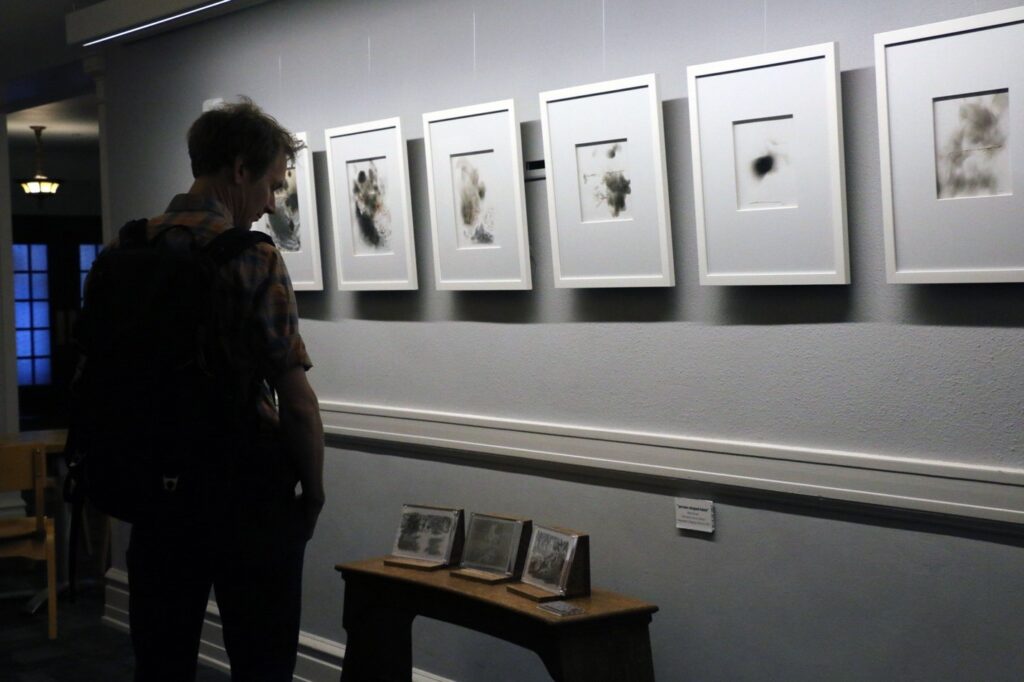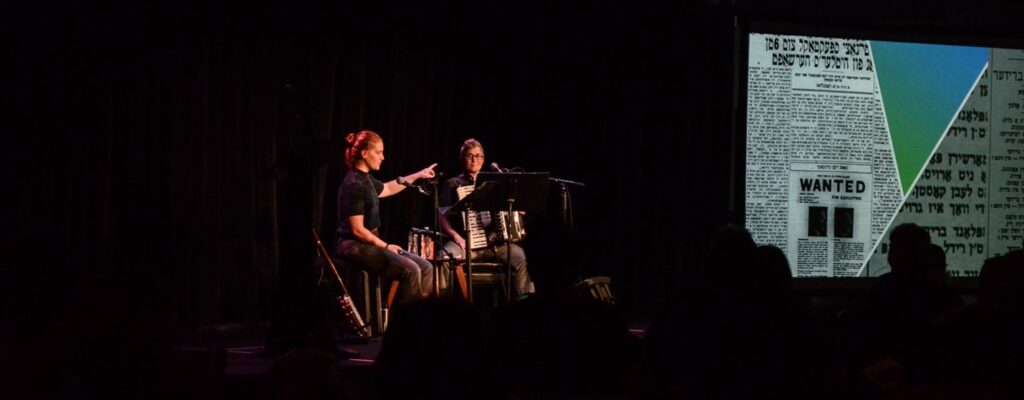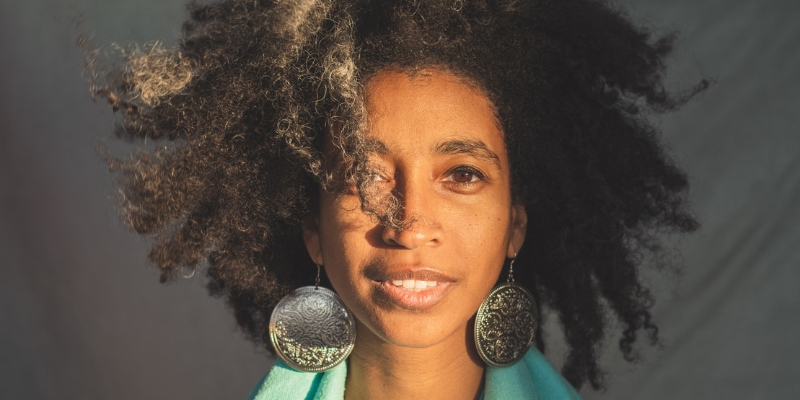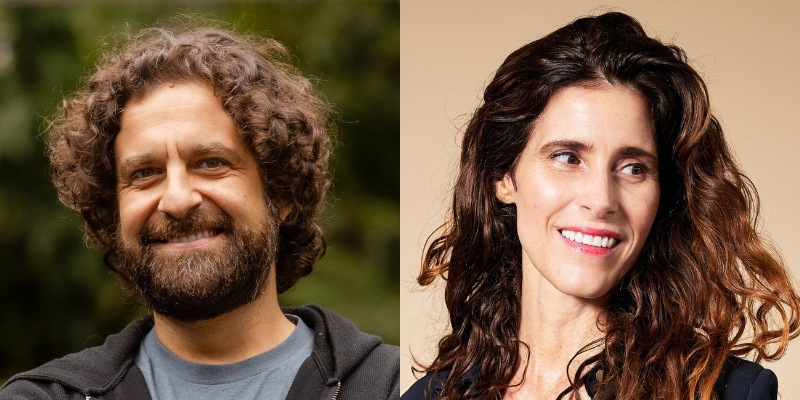Wrapping up her residency, Maia shares some reflections on her time at Town Hall.
This residency has deepened my conviction that artists are scholars and that art and scholarship are profoundly and necessarily collaborative and interdisciplinary. Spending the spring with Town Hall has enabled new ways of working with old collaborators and has inspired new ones. Three new musical compositions have come out of my residency, two of which made their debut on the Great Hall stage in May. In addition to the development of three new collaborative performance pieces incorporating archival research and new compositions, Town Hall also hosted the first exhibition of a new series of drawings.

Maia’s Artist Statement
My work is a series of epistolary experiments and ritual transliterations; a gift-giving praxis across generations and vernaculars. I ask how we find comrades among our ancestors; how we live in our diasporic archives as artists and cultural workers; how we become intrepid tinkerers looking for what we need to build sanctuaries and escape routes for one another. I want to know how we send ourselves where we cannot go, and in so doing go there. In my visual work, there is always fire—materials touched by and produced by fire. When a letter from my grandfather triggered the encounter of my last family addresses in Berlin before their escape or deportation in the 1930s and 40s, I began drawing with fire. Engaging an ashkenazi ritual (feldmestn פֿעלדמעסטן) of measuring the burial places of ancestors with wicks for ritual candles. I measure the threshold of these lost homes with wick and draw with the candles I make, guiding my paper above the flame. These soul candle (neshome likht נשמה ליכט) landscapes put ritually gathered materials in conversation on the page in iterative attempts at transliterating lineages of loss and displacement, drawing the presence of those absences with its own flame. Returning to and expanding this practice of פֿעלדמעסטן today intrinsically grapples with how to metabolize our contemporary catastrophes alongside old displacements, genocides, and assimilation. When you measure, when you lay your wick, you call upon the dead and the living.
I would like to thank Town Hall staff for their welcome, their encouragement, and their support this spring as well as all my collaborators, some of whom were able to join me on Town Hall stages.
To learn more about their work please check out Faith Jone’s new book, Meant to Be and Other Stories, Noam Lerman’s Der Tkhines Proyect, Stefanie Brendler’s other band, Seattle’s Klezmer Brass band, Shpilkis & make sure to visit, framing sponsor, Allison Joseph at Four Corners Art & Frame in Seattle’s U-district.
To continue to follow Maia’s work & keep in touch, visit:
or invite her to speak in your community through Humanities Washington’s Speakers Bureau.

Finally, Maia’s Scratch Night performance is now available on the Town Hall podcast:
“ Maybe we are not supposed to know each other, but we always do. The fact that this German anti-nazi song moved into Yiddish should not be surprising, let’s think of it as inevitable—let’s learn all we can about this particular inevitability, the details of it: meaning the people who inevitably knew and loved each other. AND let’s be asking what telling this story allows us to do now.
For more, listen at the link below


